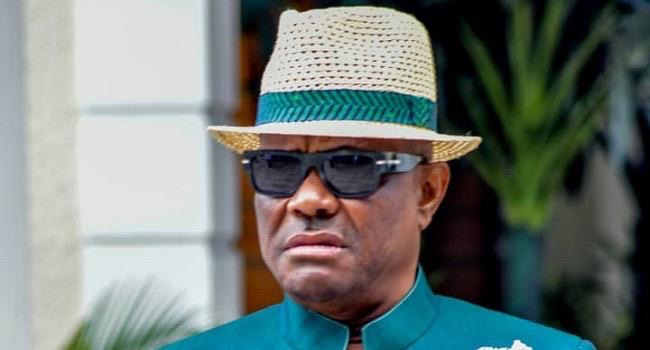By Okeke Eunice

The Federal High Court in Abuja has set February 4, 2025, to hear a N500 million lawsuit brought against the Minister of the Federal Capital Territory, Nyesom Wike, by human rights lawyer Abba Hikima. The case was filed on behalf of vulnerable residents of the FCT.
The lawsuit contests the alleged infringement on the fundamental rights of homeless individuals, scavengers, hawkers, and beggars, who were reportedly subjected to arbitrary arrests and detentions by a joint task force acting under the minister’s orders.
Hikima stated that on November 12, 2024, around 11 p.m., he witnessed a convoy of security operatives detaining vulnerable individuals along Ahmadu Bello Way.
He described the incident as involving “verbal abuse, physical threats, extortion, and detention without charges,” arguing that such actions amounted to “inhumane and degrading treatment,” violating Section 34 of the 1999 Constitution (as amended).
He is requesting the court to declare that all Nigerians, regardless of their economic status, place of birth, or appearance, have the right to move freely within the Federal Capital Territory, Abuja. This includes the right to sleep on public roads without interference, as guaranteed by Sections 35, 41, and 42 of the Constitution.
He is also seeking an order requiring the respondents to issue a public apology to the affected individuals and the Nigerian public for the arbitrary, inhumane, and unconstitutional treatment they suffered under the directive of the first respondent (Wike) on October 22, 2024.
Additionally, he is asking the court to mandate the respondents to introduce policies and reforms aimed at safeguarding the fundamental rights of vulnerable Nigerians.
The lawsuit stems from Wike’s directive issued in October 2024, which prohibited street hawking in the Federal Capital Territory.
The minister justified the ban by claiming that such activities were contributing to the increasing crime rate in the capital city.
Hikima argues that homelessness, begging, and petty trading “are not crimes under Nigerian law” and blames these conditions on “harsh and unbearable government policies” as well as the government’s “failure and inability to provide vulnerable Nigerians with security and a decent standard of living.”
In his affidavit, he claimed that those arrested under the directive included ice cream, sweets, and biscuit vendors, petty traders engaged in legitimate roadside businesses, and individuals whose appearance reflected economic hardship.
“As a human rights lawyer, I felt deeply troubled,” Hikima stated, adding that he had followed the task force’s motorcade to Eagle Square, where the victims were dropped off.
He identified three of the victims – Abdullatif Shehu, Hajiya Talatu Danladi, and Judith Samuel – and recorded their accounts as evidence.
The respondents in the case include Wike, the Inspector-General of Police, the Director-General of the Department of State Services, the Nigeria Security and Civil Defence Corps, the Attorney-General of the Federation, and the Federal Government of Nigeria.
During Tuesday’s proceedings, Usman Chamo, counsel for the applicant, confirmed that all respondents had been duly served.
A.P. Korobo-Tamono, representing the Department of State Services (DSS), informed the court that a counter-affidavit had been filed. However, no legal representatives were present for Wike, the Inspector-General of Police, or the other respondents.
Justice James Omotosho directed that hearing notices be issued to the absent respondents and adjourned the case to February 4, 2025, for a substantive hearing.